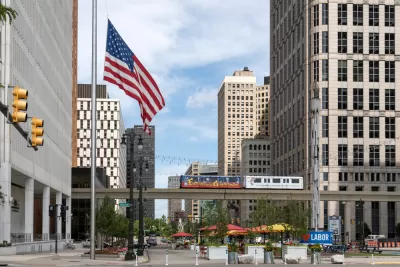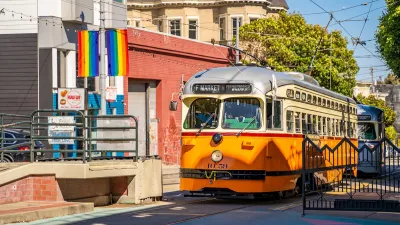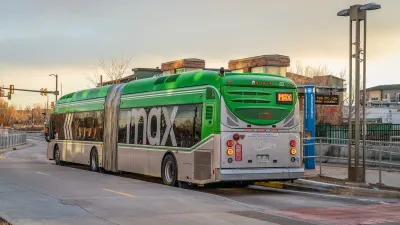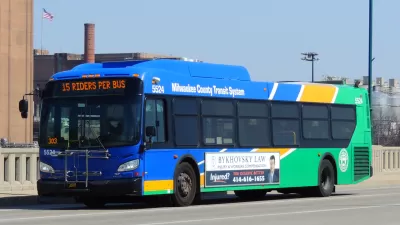The bill would tie transit funding to business subsidies as part of a broader economic development program.

A proposed bill in the Michigan state legislature would create a $2 billion transit funding program aimed at building new bus rapid transit (BRT) and commuter rail over the next decade.
As Brian Allnutt explains in Bridge Detroit, the bill, part of an initiative dubbed Make it in Michigan, would tie transit funding to other economic development programs that some critics say attract low-paying jobs to the state through tax incentives. “The legislation would extend incentives for businesses due to expire next year by another decade, providing $2.5 billion for companies investing in the state.”
For Megan Owens, executive director of the nonprofit Transportation Riders United, tying transit to business subsidies is a “necessary evil” to improve the state’s transit options. “The new legislation sets aside money for investments in transit, housing and community projects such as childcare. Michigan transit and mobility projects would receive $200 million a year, while housing and community projects would receive $100 million and $50 million, respectively.”
FULL STORY: Legislation could bring $1B in transit funding to metro Detroit over next decade

Planetizen Federal Action Tracker
A weekly monitor of how Trump’s orders and actions are impacting planners and planning in America.

Map: Where Senate Republicans Want to Sell Your Public Lands
For public land advocates, the Senate Republicans’ proposal to sell millions of acres of public land in the West is “the biggest fight of their careers.”

Restaurant Patios Were a Pandemic Win — Why Were They so Hard to Keep?
Social distancing requirements and changes in travel patterns prompted cities to pilot new uses for street and sidewalk space. Then it got complicated.

Platform Pilsner: Vancouver Transit Agency Releases... a Beer?
TransLink will receive a portion of every sale of the four-pack.

Toronto Weighs Cheaper Transit, Parking Hikes for Major Events
Special event rates would take effect during large festivals, sports games and concerts to ‘discourage driving, manage congestion and free up space for transit.”

Berlin to Consider Car-Free Zone Larger Than Manhattan
The area bound by the 22-mile Ringbahn would still allow 12 uses of a private automobile per year per person, and several other exemptions.
Urban Design for Planners 1: Software Tools
This six-course series explores essential urban design concepts using open source software and equips planners with the tools they need to participate fully in the urban design process.
Planning for Universal Design
Learn the tools for implementing Universal Design in planning regulations.
Heyer Gruel & Associates PA
JM Goldson LLC
Custer County Colorado
City of Camden Redevelopment Agency
City of Astoria
Transportation Research & Education Center (TREC) at Portland State University
Camden Redevelopment Agency
City of Claremont
Municipality of Princeton (NJ)





























